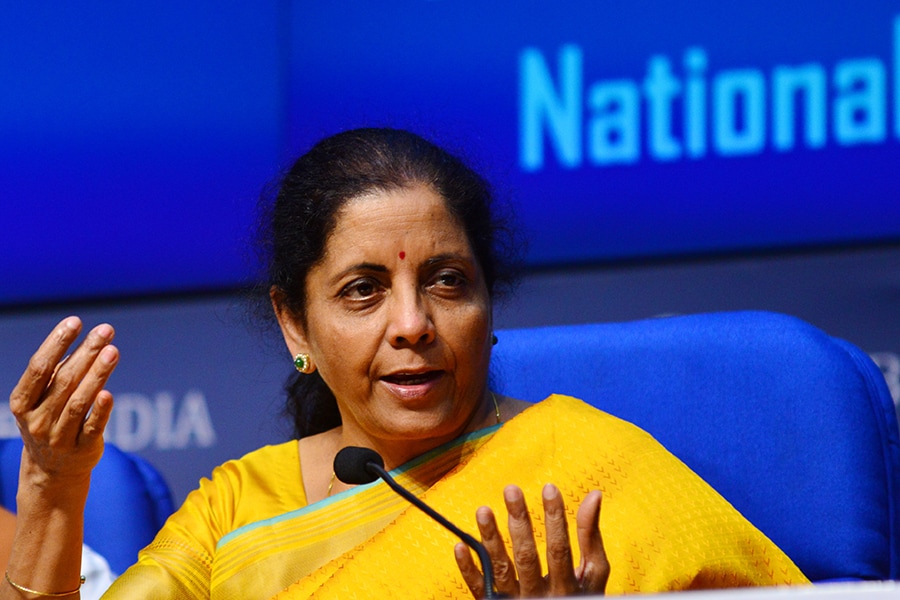
FM Nirmala Sitharaman announces assistance for low-income groups
Free food-grain distribution and rental housing schemes are key moves: experts
 Image: Ramesh Pathania/Mint via Getty Images
Image: Ramesh Pathania/Mint via Getty ImagesFinance Minister Nirmala Sitharaman on Thursday announced the second tranche of measures, aimed to assist the low-income section of the economy, including migrant labourers, farmers and street vendors, who have been the hardest hit by the Covid-19 outbreak.
For migrant workers, the key measure was a free food distribution worth Rs 3,500 crore in the form of 5 kg of rice or wheat per family and 1 kg of a pulse per person. At least 8 crore migrant workers who do not fall under the Food Security Act will benefit, Sitharaman said.
“This will provide immediate succour to a critical issue, but the only caveat is that the onus is on the respective state governments to implement this programme,” Ranen Banerjee, leader, economic advisory services with PwC in India told Forbes India.
The government also announced plans to launch a targeted rental affordable housing scheme for urban migrant workers, through a public private partnership and concessionaires. This scheme, experts said, could provide benefit to these workers over the longer term in terms of better living conditions, when they return to work. What it will need is assistance from various industries such as real estate, housing, construction and infrastructure, who are dependent on migrant labour force.
Another key measure was to assist small businesses and street vendors, where the government has announced a two percent interest subvention on micro loans under the Mudra scheme worth Rs 1,500 crore. For street vendors, the plan is to introduce a lending programme of Rs 10,000 per vendor to help their businesses.
Most of these vendors, who borrow at high costs from microfinance firms and money lenders, operate on low margins. But what this segment of the society needs is cheaper access to capital.
All the schemes announced over the past two days are part of a larger Rs 20 lakh crore support package, disclosed on Monday by Prime Minister Narendra Modi. On Wednesday, Sitharaman announced measures to help micro- and small businesses (MSMEs) which are starved for cash, steps to boost liquidity for non-banking financial companies (NBFCs) and tax measures for individuals and corporates.





